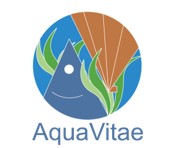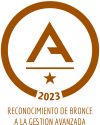Last 4th June, over 70 scientists and industry professionals from 16 countries gather in Tromsø, Norway, to launch the EU funded AquaVitae project. Over the next four years, they will work to increase aquaculture production of low-trophic species in and around the Atlantic Ocean in sustainable ways.
AquaVitae is a new research and innovation project funded by the EU’s Horizon 2020 programme. The project consortium consists of 36 partners, from 16 different countries, spread across four continents. In addition to Europe, partners are situated in countries bordering the Atlantic Ocean, including Brazil, South Africa, Namibia, as well as in North America.
BIOLAN will develop a smart portable sulphite biosensing device integrated in an IoT platform. Sulphite monitoring is important in shrimp aquaculture, to ensure and document that the product is safe and that sulphite level is below a certain limit establish by the EC regulation. Integration of the biosensor device with IoT infrastructures will give better production monitoring, reporting and control, improving the competitiveness of the shrimp aquaculture industry.
The project is coordinated by Nofima-the Norwegian Institute of Food, Fisheries and Aquaculture Research. It’s an exciting challenge to bring together industry and research partners from across the length and breadth of the Atlantic to address relevant societal challenges.
The project’s purpose is to introduce new low trophic species, products and processes in marine aquaculture value chains across the Atlantic. The five chosen value chains include macroalgae, Integrated Multi-Trophic Aquaculture (IMTA), echinoderm species (e.g. sea urchins), shellfish and finfish. IMTA is a process that farms several species together using waste from one species as feed for another.
To complete the objectives, 11 case studies will be conducted across the Atlantic, with emphasis on developing new products from low-trophic species (e.g. macroalgae and sea urchins), optimising production in existing industries (e.g. shellfish and finfish) and moving towards zero waste and a circular economy in aquaculture (e.g. IMTA and Biofloc).
Some of the cross-cutting activities involve research into biosensors, Internet of Things (IoT), product characteristics, market potential, sustainability, environmental monitoring, as well as conducting risk assessments, analyses of value chains, studying profitability and the legal framework.
Furthermore, the project will implement a multi-actor approach to ensure stakeholder involvement in all phases of the project. Companies act as partners of the consortium together with research institutes and universities, which will also help to establish a durable aquaculture industry and research network around the Atlantic Ocean.











